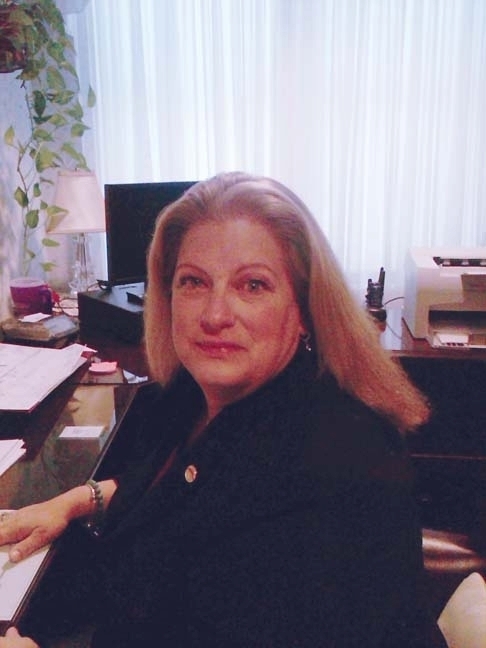
Nursing homes across Rhode Island have been abuzz in recent years with “culture change,” a national movement to reshape residential long-term care to be more home-like, less institutional, and more focused on elders’ individual needs.
But culture change doesn’t involve a single set of policies and procedures; it plays out differently at each facility. Elizabeth A. Sarro, administrator of Riverview Healthcare Community, a 190-bed nursing home in Coventry, explained what her team has done, and the results.
PBN: How big is Riverview, and what kind of population do you serve?
SARRO: Riverview is a 190-bed facility with a 30-bed sub-acute /transition unit, two 20-bed locked Alzheimer’s units, and three long-term units. We serve a large short-term population in our transition unit, where we provide significant clinical services and transition people back home; some of those residents are younger – even in their 50s – but some are very frail and end up [moving to] the long-term area.
In the long-term care units, the average age is 86, and 85 percent of residents are female. … We have many dedicated family members who have cared for their loved one at home for as long as possible and now continue to be part of our team at Riverview. What makes us unique is our dedicated staff and families.
PBN: What drew you to get involved in culture change?
SARRO: It is all about the residents. How would you like to sleep in a twin bed? When was the last time you had a roommate? How would you like to be told what time you are getting up and going to bed? What to eat, when to eat? Culture change takes the residents’ likes and dislikes first. Moving from a regulatory model to a quality model was easy when you consider the customer first.
PBN: How did you go about it, and what were some of the results?
SARRO: The management team [started by] participating in cutting-edge educational programs and research. We have worked with Quality Partners of Rhode Island on many studies, including a noise reduction study, consistent assignment [in which the same staff members work with a resident every day], and a pressure ulcer study. And we have embraced a culture of quality improvement, [which] takes work. …
We joined Advancing Excellence, a program sponsored by the American Health Care Association where goals are set and outcomes measured for improvement in a variety of areas: resident and family rights, work force excellence, continuous quality improvement and accountability. Riverview won a Quality Award for our restraint-free environment and for a reduction in the falls rate. This is a huge accomplishment.
In addition, we did resident and staff satisfaction surveys and used the data to change how we operate. As an example, we know that low staff turnover and employee satisfaction lead successful culture change. Happy employees care about what they do, and a consistent staff knows the residents and does the little things that matter, like curling their hair or putting on make-up or making sure they get certain foods, do their favorite activity.
PBN: How involved has the staff been in culture change?
SARRO: My 210 employees have passion and pride in what they do. From the surveys, we know that 96 percent report job satisfaction, 97 percent would recommend Riverview to others, and residents and families cherish friendships with staff and other residents. Riverview is warm and cozy, very much home-like.
Riverview has also committed to support and listen to our employees. We have developed career ladders for nursing assistants, which gives them goals to achieve and more of a financial reward. They commit to doing quality projects and have to present the outcomes to the staff. This promotes leadership, which helps to drive quality. Management listens to the employees and takes action upon suggestions. This promotes a safe work environment and confidence that our employees count. It all equals better outcomes for our residents.
PBN: What are some of your priorities as you look ahead?
SARRO: Our next great challenge is to enhance the food service. Imagine cooking all your life and now you have to accept what is served. Was the soup good? Did it meet your expectations? This is a big undertaking, but we are ready for it. We have started a continental breakfast program, so [residents] may get up when they want and come down to eat when they’re ready, and be served by wait staff. They can choose off the menu, as in a restaurant.
There are six dining rooms here, so this project has taken much planning and coordination. We are working to go to a waitress service on all floors starting with lunch. Some food will be made on the floors, and the kitchen staff will go upstairs to help serve. Housekeeping will help with setup. This is a multidisciplinary team effort … [and] everyone is excited. The kitchen staff is getting positive feedback … and our dining rooms are noisy and full of chatter and laughter. We are doing something right.
What does the future hold? More of the same. There is always room for improvement. … We will continue to commit to excellence and strive to get there.
To read more about Riverview, go to www.hcltdri.com. To learn about culture change trends nationwide, read a Health Affairs article released last week, or watch a video of the related discussion here.











